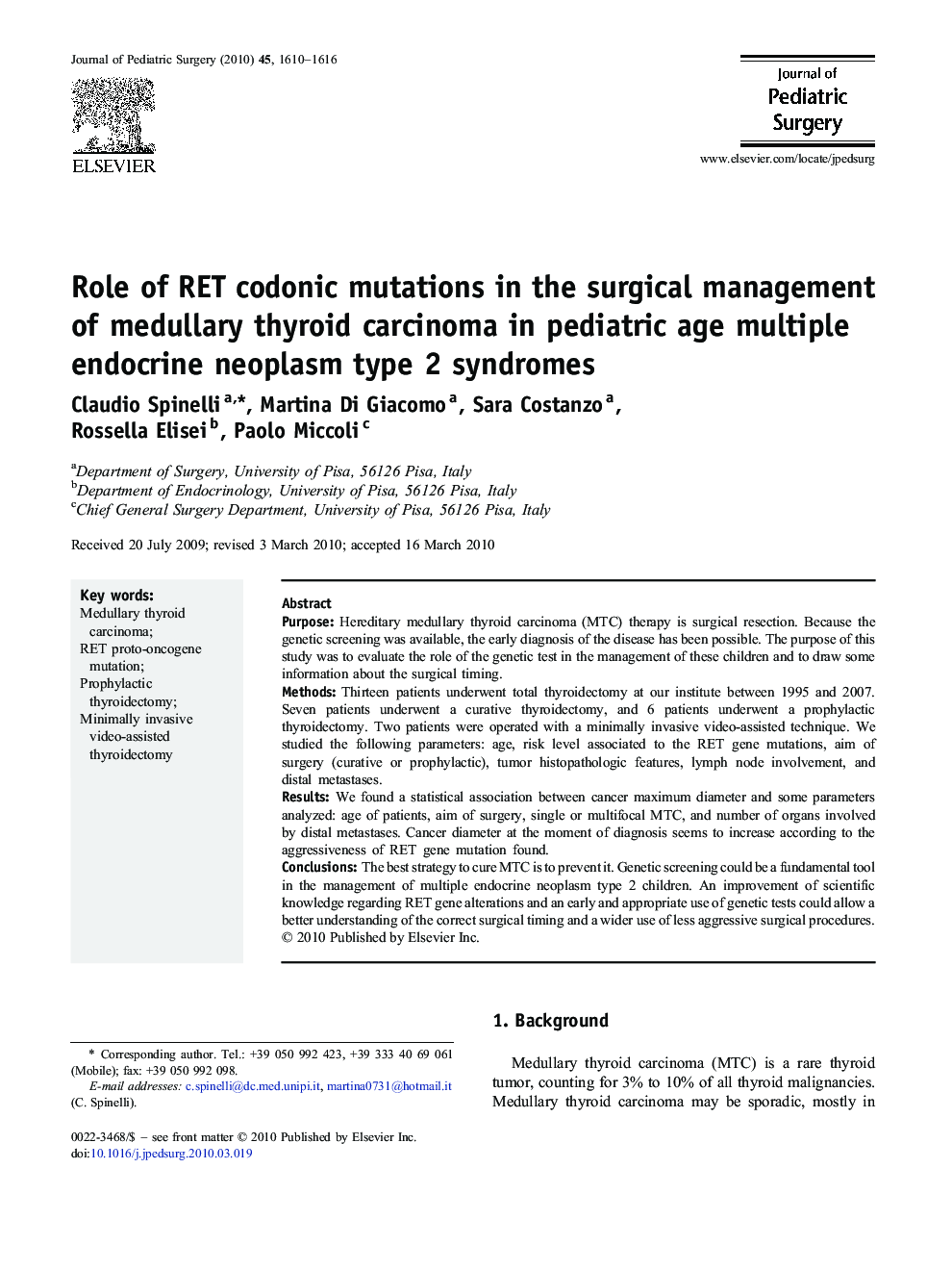| Article ID | Journal | Published Year | Pages | File Type |
|---|---|---|---|---|
| 4158139 | Journal of Pediatric Surgery | 2010 | 7 Pages |
PurposeHereditary medullary thyroid carcinoma (MTC) therapy is surgical resection. Because the genetic screening was available, the early diagnosis of the disease has been possible. The purpose of this study was to evaluate the role of the genetic test in the management of these children and to draw some information about the surgical timing.MethodsThirteen patients underwent total thyroidectomy at our institute between 1995 and 2007. Seven patients underwent a curative thyroidectomy, and 6 patients underwent a prophylactic thyroidectomy. Two patients were operated with a minimally invasive video-assisted technique. We studied the following parameters: age, risk level associated to the RET gene mutations, aim of surgery (curative or prophylactic), tumor histopathologic features, lymph node involvement, and distal metastases.ResultsWe found a statistical association between cancer maximum diameter and some parameters analyzed: age of patients, aim of surgery, single or multifocal MTC, and number of organs involved by distal metastases. Cancer diameter at the moment of diagnosis seems to increase according to the aggressiveness of RET gene mutation found.ConclusionsThe best strategy to cure MTC is to prevent it. Genetic screening could be a fundamental tool in the management of multiple endocrine neoplasm type 2 children. An improvement of scientific knowledge regarding RET gene alterations and an early and appropriate use of genetic tests could allow a better understanding of the correct surgical timing and a wider use of less aggressive surgical procedures.
